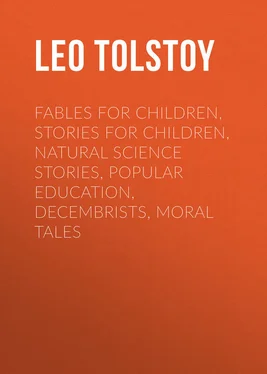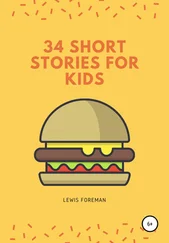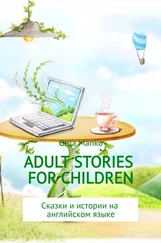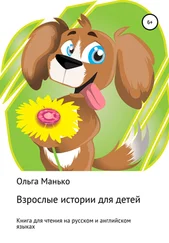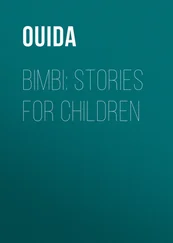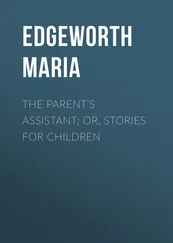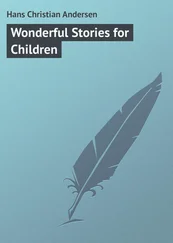Leo Tolstoy - Fables for Children, Stories for Children, Natural Science Stories, Popular Education, Decembrists, Moral Tales
Здесь есть возможность читать онлайн «Leo Tolstoy - Fables for Children, Stories for Children, Natural Science Stories, Popular Education, Decembrists, Moral Tales» — ознакомительный отрывок электронной книги совершенно бесплатно, а после прочтения отрывка купить полную версию. В некоторых случаях можно слушать аудио, скачать через торрент в формате fb2 и присутствует краткое содержание. Жанр: Русская классическая проза, на английском языке. Описание произведения, (предисловие) а так же отзывы посетителей доступны на портале библиотеки ЛибКат.
- Название:Fables for Children, Stories for Children, Natural Science Stories, Popular Education, Decembrists, Moral Tales
- Автор:
- Жанр:
- Год:неизвестен
- ISBN:нет данных
- Рейтинг книги:5 / 5. Голосов: 1
-
Избранное:Добавить в избранное
- Отзывы:
-
Ваша оценка:
- 100
- 1
- 2
- 3
- 4
- 5
Fables for Children, Stories for Children, Natural Science Stories, Popular Education, Decembrists, Moral Tales: краткое содержание, описание и аннотация
Предлагаем к чтению аннотацию, описание, краткое содержание или предисловие (зависит от того, что написал сам автор книги «Fables for Children, Stories for Children, Natural Science Stories, Popular Education, Decembrists, Moral Tales»). Если вы не нашли необходимую информацию о книге — напишите в комментариях, мы постараемся отыскать её.
Fables for Children, Stories for Children, Natural Science Stories, Popular Education, Decembrists, Moral Tales — читать онлайн ознакомительный отрывок
Ниже представлен текст книги, разбитый по страницам. Система сохранения места последней прочитанной страницы, позволяет с удобством читать онлайн бесплатно книгу «Fables for Children, Stories for Children, Natural Science Stories, Popular Education, Decembrists, Moral Tales», без необходимости каждый раз заново искать на чём Вы остановились. Поставьте закладку, и сможете в любой момент перейти на страницу, на которой закончили чтение.
Интервал:
Закладка:
"Stand still, motherkin; take it, take it! I will bring you some more, only stand still."
On the next evening the Goat came home from the field before the Cow, and spread his legs, and stood in front of the old woman. The old woman wanted to strike him with the towel, but he stood still, and did not stir. He remembered that the woman had promised the Cow some bread if she would stand still. When the woman saw that he would not budge, she picked up a stick, and beat him with it.
When the Goat went away, the woman began once more to feed the Cow with bread, and to talk to her.
"There is no honesty in men," thought the Goat. "I stood still better than the Cow, and was beaten for it."
He stepped aside, took a run, hit against the milk-pail, spilled the milk, and hurt the old woman.
THE FOX'S TAIL
A Man caught a Fox, and asked her:
"Who has taught you Foxes to cheat the dogs with your tails?"
The Fox asked: "How do you mean, to cheat? We do not cheat the dogs, but simply run from them as fast as we can."
The Man said:
"Yes, you do cheat them with your tails. When the dogs catch up with you and are about to clutch you, you turn your tails to one side; the dogs turn sharply after the tail, and then you run in the opposite direction."
The Fox laughed, and said:
"We do not do so in order to cheat the dogs, but in order to turn around; when a dog is after us, and we see that we cannot get away straight ahead, we turn to one side, and in order to do that suddenly, we have to swing the tail to the other side, just as you do with your arms, when you have to turn around. That is not our invention; God himself invented it when He created us, so that the dogs might not be able to catch all the Foxes."
THE FOUNDLING
A poor woman had a daughter by the name of Másha. Másha went in the morning to fetch water, and saw at the door something wrapped in rags. When she touched the rags, there came from it the sound of "Ooah, ooah, ooah!" Másha bent down and saw that it was a tiny, red-skinned baby. It was crying aloud: "Ooah, ooah!"
Másha took it into her arms and carried it into the house, and gave it milk with a spoon. Her mother said:
"What have you brought?"
"A baby. I found it at our door."
The mother said:
"We are poor as it is; we have nothing to feed the baby with; I will go to the chief and tell him to take the baby."
Másha began to cry, and said:
"Mother, the child will not eat much; leave it here! See what red, wrinkled little hands and fingers it has!"
Her mother looked at them, and she felt pity for the child. She did not take the baby away. Másha fed and swathed the child, and sang songs to it, when it went to sleep.
THE PEASANT AND THE CUCUMBERS
A peasant once went to the gardener's, to steal cucumbers. He crept up to the cucumbers, and thought:
"I will carry off a bag of cucumbers, which I will sell; with the money I will buy a hen. The hen will lay eggs, hatch them, and raise a lot of chicks. I will feed the chicks and sell them; then I will buy me a young sow, and she will bear a lot of pigs. I will sell the pigs, and buy me a mare; the mare will foal me some colts. I will raise the colts, and sell them. I will buy me a house, and start a garden. In the garden I will sow cucumbers, and will not let them be stolen, but will keep a sharp watch on them. I will hire watchmen, and put them in the cucumber patch, while I myself will come on them, unawares, and shout: 'Oh, there, keep a sharp lookout!'"
And this he shouted as loud as he could. The watchmen heard it, and they rushed out and beat the peasant.
THE FIRE
During harvest-time the men and women went out to work. In the village were left only the old and the very young. In one hut there remained a grandmother with her three grandchildren.
The grandmother made a fire in the oven, and lay down to rest herself. Flies kept alighting on her and biting her. She covered her head with a towel and fell asleep. One of the grandchildren, Másha (she was three years old), opened the oven, scraped some coals into a potsherd, and went into the vestibule. In the vestibule lay sheaves: the women were getting them bound.
Másha brought the coals, put them under the sheaves, and began to blow. When the straw caught fire, she was glad; she went into the hut and took her brother Kiryúsha by the arm (he was a year and a half old, and had just learned to walk), and brought him out, and said to him:
"See, Kiryúsha, what a fire I have kindled."
The sheaves were already burning and crackling. When the vestibule was filled with smoke, Másha became frightened and ran back into the house. Kiryúsha fell over the threshold, hurt his nose, and began to cry; Másha pulled him into the house, and both hid under a bench.
The grandmother heard nothing, and did not wake. The elder boy, Ványa (he was eight years old), was in the street. When he saw the smoke rolling out of the vestibule, he ran to the door, made his way through the smoke into the house, and began to waken his grandmother; but she was dazed from her sleep, and, forgetting the children, rushed out and ran to the farmyards to call the people.
In the meantime Másha was sitting under the bench and keeping quiet; but the little boy cried, because he had hurt his nose badly. Ványa heard his cry, looked under the bench, and called out to Másha:
"Run, you will burn!"
Másha ran to the vestibule, but could not pass for the smoke and fire. She turned back. Then Ványa raised a window and told her to climb through it. When she got through, Ványa picked up his brother and dragged him along. But the child was heavy and did not let his brother take him. He cried and pushed Ványa. Ványa fell down twice, and when he dragged him up to the window, the door of the hut was already burning. Ványa thrust the child's head through the window and wanted to push him through; but the child took hold of him with both his hands (he was very much frightened) and would not let them take him out. Then Ványa cried to Másha:
"Pull him by the head!" while he himself pushed him behind.
And thus they pulled him through the window and into the street.
THE OLD HORSE
In our village there was an old, old man, Pímen Timoféich. He was ninety years old. He was living at the house of his grandson, doing no work. His back was bent: he walked with a cane and moved his feet slowly.
He had no teeth at all, and his face was wrinkled. His nether lip trembled; when he walked and when he talked, his lips smacked, and one could not understand what he was saying.
We were four brothers, and we were fond of riding. But we had no gentle riding-horses. We were allowed to ride only on one horse, – the name of that horse was Raven.
One day mamma allowed us to ride, and all of us went with the valet to the stable. The coachman saddled Raven for us, and my eldest brother was the first to take a ride. He rode for a long time; he rode to the threshing-floor and around the garden, and when he came back, we shouted:
"Now gallop past us!"
My elder brother began to strike Raven with his feet and with the whip, and Raven galloped past us.
After him, my second brother mounted the horse. He, too, rode for quite awhile, and he, too, urged Raven on with the whip and galloped up the hill. He wanted to ride longer, but my third brother begged him to let him ride at once.
My third brother rode to the threshing-floor, and around the garden, and down the village, and raced up-hill to the stable. When he rode up to us Raven was panting, and his neck and shoulders were dark from sweat.
When my turn came, I wanted to surprise my brothers and to show them how well I could ride, so I began to drive Raven with all my might, but he did not want to get away from the stable. And no matter how much I beat him, he would not run, but only shied and turned back. I grew angry at the horse, and struck him as hard as I could with my feet and with the whip. I tried to strike him in places where it would hurt most; I broke the whip and began to strike his head with what was left of the whip. But Raven would not run. Then I turned back, rode up to the valet, and asked him for a stout switch. But the valet said to me:
Читать дальшеИнтервал:
Закладка:
Похожие книги на «Fables for Children, Stories for Children, Natural Science Stories, Popular Education, Decembrists, Moral Tales»
Представляем Вашему вниманию похожие книги на «Fables for Children, Stories for Children, Natural Science Stories, Popular Education, Decembrists, Moral Tales» списком для выбора. Мы отобрали схожую по названию и смыслу литературу в надежде предоставить читателям больше вариантов отыскать новые, интересные, ещё непрочитанные произведения.
Обсуждение, отзывы о книге «Fables for Children, Stories for Children, Natural Science Stories, Popular Education, Decembrists, Moral Tales» и просто собственные мнения читателей. Оставьте ваши комментарии, напишите, что Вы думаете о произведении, его смысле или главных героях. Укажите что конкретно понравилось, а что нет, и почему Вы так считаете.
